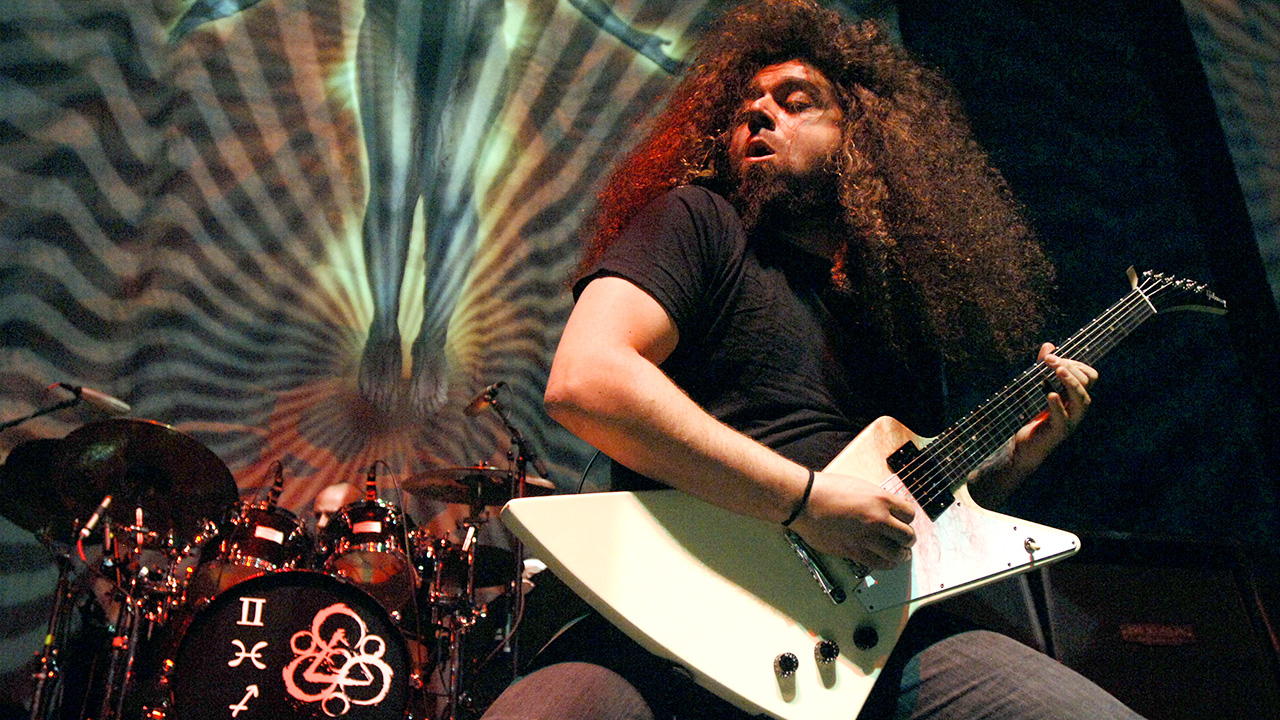
Coheed And Cambria had an incredible 2010. After releasing their fifth studio album, Year Of The Black Rainbow, the New York quartet toured the world, taking in the UK twice. Prog gleefully accepted the opportunity to sit down with frontman Claudio Sanchez and chat about the group’s recent victories, and where they’d be taking their fearless music next.
Year Of The Black Rainbow went in at No. 5 in the US chart. How does it feel to have released your most successful album yet?
We didn’t know what to expect, but it’s funny because the position has gone up one on the last two records. The last record was No. 6, the one before that was No. 7... So maybe a few records down the road we’ll make it to No. 1!
Did you harbour serious hopes for reaching No. 1?
For the type of music that we play, just one step up is a home run. I don’t expect much, but when those victories happen, it’s kind of awesome. Chart positioning aside, the fact that we’re allowed to play music professionally, and that we can have a fanbase that enjoys what we do – that’s the real victory. Awards and charts? That’s just icing. Or sprinkles.
Where do Coheed And Cambria fit into the music scene?
I like to think we bring a lot of different influences into the music. I think of the band as a progressive band because, with every record, we’re evolving and changing. We just try to be as open-minded as possible and, again, evolve and challenge ourselves. And the only way we can do that is to progress.
What do you think it is about the records that attract new fans or retain the existing ones?
Maybe it’s not just the records, but with the touring I feel like we attract new listeners. Getting in the van, stirring up word-of-mouth – that’s how we’ve gotten to where we are.
It’s notable that the stories you tell in your albums aren’t quite as specific as they used to be.
I think that as I’ve progressed as a songwriter and lyricist, the concepts aren’t necessarily as heavy and strong in the lyrics, so the themes are a little bit more universal, and more people can understand. I think that’s been attracting new listeners to the band, because they’re maybe not so suffocated by our concept.
Are you wary of the potentially off-putting aspect of having a fictional narrative to your music?
Without a doubt. It’s something I’m beginning to understand. When I started this whole idea 12 years ago, as a lyricist I had a hard time singing about myself and that’s what I was doing. I was so shy and reclusive so I just thought, ‘I love science fiction and fantasy, so I’m just going to create a fictitious world and hide in it.’
All of these records are reflections of who I was when I wrote them, but I think it was about the time of Good Apollo Volume One [2005] when I started to allow the audience to know that, by showing them the story comes from some place within me.
How do you feel about being labelled by some as a self-indulgent artist?
Really? That’s insane! Sometimes I feel like, because of the concept, critics don’t necessarily give our music a fair chance. They’ll think, ‘This is too much for me… It’s going to go over my head… Is it the first story or the last story?’ You know what I mean?
I’ll read reviews of our records and they just have nothing to do with the music. I just read a review where somebody had obviously just seen the video for The Suffering and was writing about unicorns and centaurs in the review, and I was just like, ‘That… was… two records ago.’ I think if they gave it a chance, they’d really enjoy it.
Unicorns are awesome though. Do you ever crave more mainstream acceptance?
Even with the songs that are a little bit more accessible, we still get pinned as bizarre and wrong. I think what we do is to create a catalogue of songs that are different.
Having songs like The Willing Well sitting next to Made Out Of Nothing is cool. I think it certainly creates peaks and valleys. They’re on different records, but in terms of catalogue you can think about it and listen to it as the concept.
Would you ever write a standalone record or is the concept that important?
For me, the concept is always going to be there. If we make this next record and we push away from the concept, I want to be able to explain why we did this, or the true story of Coheed and Cambria.
You’ve finished The Amory Wars with a prequel: was this part of your plan?
Yes, because originally it was actually going to be a trilogy ending with In Keeping… because Coheed and Cambria actually pass in the second story, so I thought it would be nice to revisit those characters at the end and show them in a more heroic light.
Have you been working on your next album?
I have, actually. Part of me wants to create another concept that could frame this album and continue to write songs about myself that are transformed into a piece of fiction. Or I could write a record that explains why I do things like this... I’m torn down the middle.
How about your solo material? Will you be pursuing that?
I’ve done some loosely, fooling around with a project called The Prize Fighter Inferno, which is primarily a fun acoustic/electronica crossbreed. But I want to continue making music whether it’s with this outfit, whether it’s with concepts or with another one.







